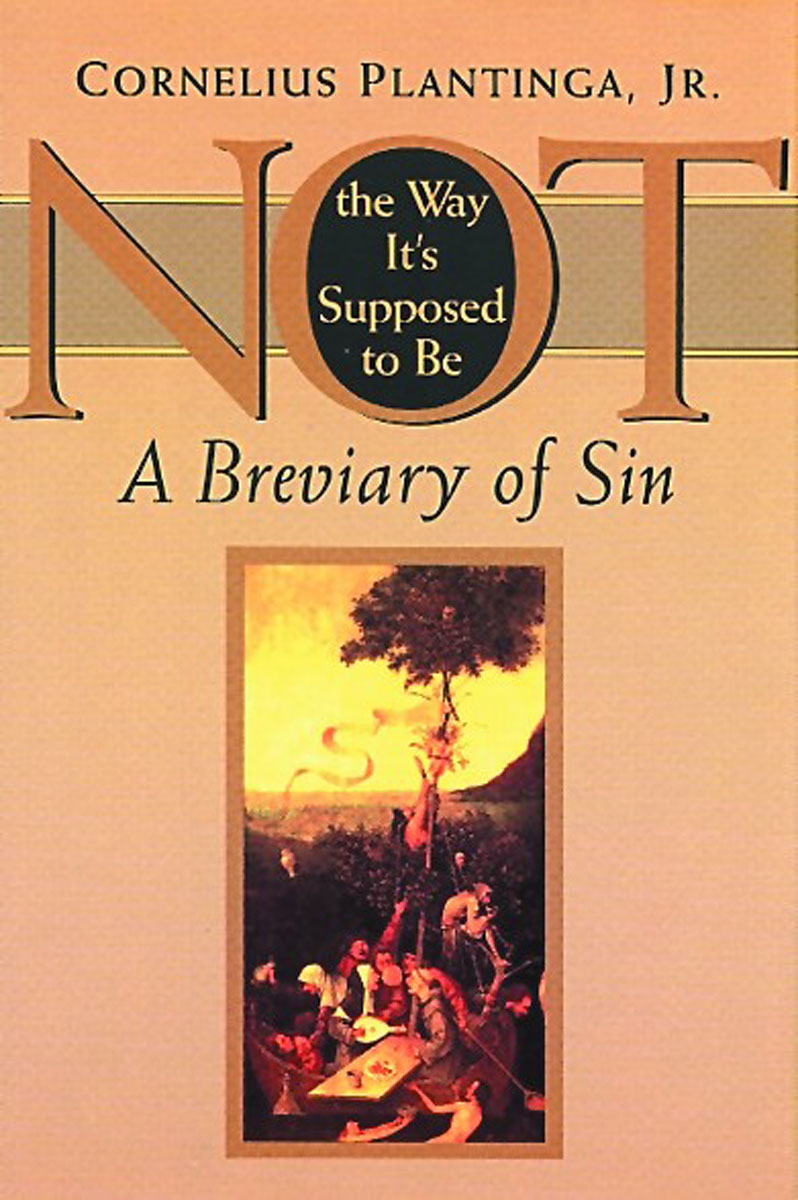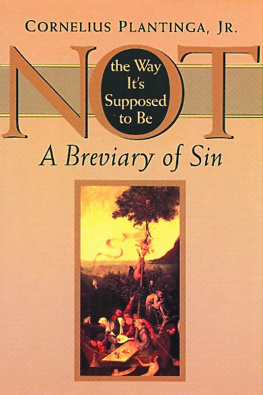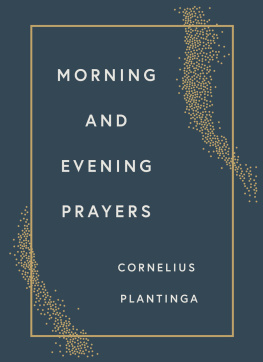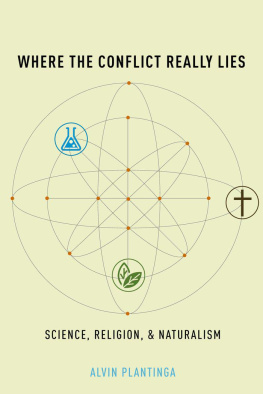
You have delivered us into the hand of our iniquity.
ISAIAH 64:7
Wm. B. Eerdmans Publishing Co.
2140 Oak Industrial Dr. NE, Grand Rapids, Michigan 49505
www.eerdmans.com
1995 Wm. B. Eerdmans Publishing Co.
All rights reserved
Hardcover edition 1995
Paperback edition 1996
Printed in the United States of America
23 22 21 20 19 18 22 23 24 25 26 27
Library of Congress Cataloging-in-Publication Data
Plantinga, Cornelius, 1946
Not the way its supposed to be: a breviary of sin / Cornelius Plantinga, Jr.
p. cm.
Includes bibliographical references and index.
ISBN 978-0-8028-4218-3
1. Sin. 2. Christian lifeReformed (Reformed Church) authors.
I. Title.
BT715.P58 1994
Unless otherwise noted, the Scripture quotations in this publication are from the New Revised Standard Version of the Bible, copyright 1989 by the Division of Christian Education of the National Council of Churches of Christ in the U.S.A., and used by permission.
of this volume appeared in a different form in the pages of Theology Today. The author and publisher wish to thank the editors of that publication for permission to make use of this material.
To Peter J. Kok
reader, raconteur, family man, gamester, attorney,
Christian, amigo from youthwho has taught me
more about the topic of this book
than I can properly express.
Contents
Preface
I n this book I am trying to retrieve an old awareness that has slipped and changed in recent decades. The awareness of sin used to be our shadow. Christians hated sin, feared it, fled from it, grieved over it. Some of our grandparents agonized over their sins. A man who lost his temper might wonder whether he could still go to Holy Communion. A woman who for years envied her more attractive and intelligent sister might worry that this sin threatened her very salvation.
But the shadow has dimmed. Nowadays, the accusation you have sinned is often said with a grin, and with a tone that signals an inside joke. At one time, this accusation still had the power to jolt people. Catholics lined up to confess their sins; Protestant preachers rose up to confess our sins. And they did it regularly. As a child growing up in the fifties among Western Michigan Calvinists, I think I heard as many sermons about sin as I did about grace. The assumption in those days seemed to be that you couldnt understand either without understanding both.
Many American Christians recall sermons in which preachers got visibly angry over a congregations sin. When these preachers were in full cry, they would make red-faced, finger-pointing, second-person-plural accusations: You are sinnersfilthy, guilty, miserable sinners! Occasionally, these homiletical indictments veered awfully close to the second-person singular.
Of course, the old preachers sometimes appeared to forget that their audience included sincere and mature believers. (You wondered what language they would have saved for Himmler or Stalin!) Such preachers were also capable of sounding self-righteous: their own hearts were pure, they wanted you to believe, and even when they were adolescent they yearned much less for sex than for Sunday school.
Still, you were never in doubt what these preachers were talking about. They were talking about sin. In todays group confessionals it is harder to tell. The newer language of Zion fudges: Let us confess our problem with human relational adjustment dynamics, and especially our feebleness in networking. Or, Id just like to share that we just need to target holiness as a growth area. Where sin is concerned, people mumble now.
Why should we speak up? Why retrieve the awareness of sin? Why restate the Christian doctrine of sin? The reason is that although traditional Christianity is true, its truth saws against the grain of much in contemporary culture and therefore needs constant sharpening. Christianitys major doctrines need regular restatement so that people may believe them, or believe them anew. Its classic awarenesses need to be evoked so that people may have them, or have them again. Recalling and confessing our sin is like taking out the garbage: once is not enough.
But anyone who tries to recover the knowledge of sin these days must overcome long odds. To put it mildly, modern consciousness does not encourage moral reproach; in particular, it does not encourage self-reproach. Preachers mumble about sin. The other traditional custodians of moral awareness often ignore, trivialize, or evade it. Some of these evasions take time and training. As sociologist James Davison Hunter has observed, school teachers no longer say anything as pointed as Stop it, please! Youre disturbing the class! For these are judgmental words. Instead, to a strong-armed youth who is rattling classroom windows with his tennis ball, educationally correct teachers put a sequence of caring questions: What are you doing? Why are you doing it? How does doing this make you feel?
The word sin, Hunter adds, now finds its home mostly on dessert menus. Peanut Butter Binge and Chocolate Challenge are sinful; lying is not. The new measure for sin is caloric.
But back around 1990 a few of the older breezes began to blow again. A mainline syndicated columnist wondered Why Nothing Is Wrong Anymore. In 1992 the vice president of the United States drew guffaws from talk show hosts when he complained that TVs Murphy Brown made voluntary single parenthood look like merely another lifestyle optionand a glamorous one at thatbut he also drew widespread support from people (including Newsweek and The Atlantic Monthly cover story writers) who were otherwise barely tolerant of his quixoticisms.
In the summer of 1993, The New York Times Book Review ran a series on the seven deadly sins, authored by the likes of John Updike, Gore Vidal, and Mary Gordon, and MTV produced a special video on the same topic. Though, as John Leo commented in U.S. News and World Report, the Times pieces were often artsy and arcane, and the MTV production so fragmented and trivial as to suggest that its spokespersons really lacked a vocabulary and frame of reference sturdy enough for the topic, the fact that these sources addressed the topic at all was surprising and newsworthy.
That same summer, Theology Today devoted a whole issue to a serious discussion of sin, including essays on contrition, civil sin, and preaching on sin. Mindful of decades of trivializing where sin is concerned, Thomas G. Long titled his editorial introduction God Be Merciful to Me, a Miscalculator.
In one of the best known and most widely reproduced editorials on morality in the nineties (The Joy of What? 12 December 1991), the Wall Street Journal recounted a number of public sex scandalsAnita Hills abuse charges against Supreme Court nominee Clarence Thomas, Magic Johnsons confession that his HIV infection was a by-product of promiscuous sexual athleticism, William Kennedy Smiths grimy testimony in his Palm Beach rape trial. The Journal then said, The United States has a drug problem and a high school sex problem and a welfare problem and an AIDS problem and a rape problem. None of this will go away until more people in positions of responsibility are willing to come forward and explain, in frankly moral terms, that some of the things people do nowadays are wrong. Remarkably, the
Next page









